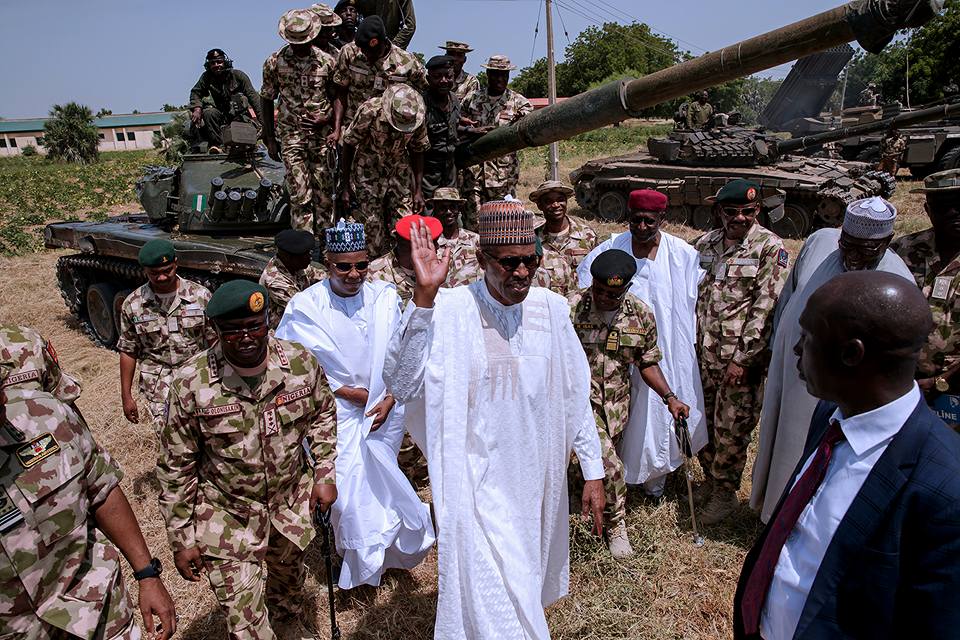All is now set for the opening tomorrow of the North East Human Rights, Peace and Security conference in Maiduguri, capital of Borno State. Grounded in the notion of “developing an integrated and locally owned peace and human rights agenda for the Northeast”, the conference will bring together diverse players around the themes of human rights, peace and security in the region. In other words, it is concerned with issues of human rights or structural violence under conditions of war, the war being the Boko Haram insurgency and the counter-insurgency against it by the regional coalition military.

The organisers of the Maiduguri conference
The two day conference by the conflict transformation and peacebuilding international NGO, Search for Common Ground which is also simply known as Search is coinciding with the high impact abduction of school girls now put at 110 by government figures and already taken as far as Niger Republic, according to some Nigerian newspapers. It is not clear how it all happened that the country was caught flat footed again after its similar experience with a similar earlier operation in which a whooping total of over 200 school girls were successfully abducted by the same Boko Haram in 2014. This particular operation has forced the government to edit the success rate of the counter-insurgency from that of Boko Haram having been totally defeated to having been terribly degraded it. The impact of that change of narrative on the mystique of Boko Haram remains to be seen and brings to the mind the argument that conflict analysis in Nigeria has yet to transcend slogans into what Veritas University, Abuja Vice-Chancellor, Professor Mike Kwanashie, for instance, recently called fundamental disconnect that underpin violent conflict.
The conference in question might thus provide a case study of how deep or how shallow conflict analysts in Nigeria go in framing conflicts, a crucial component of conflict management. Would this conference’s conception of human rights, peace and security be a product of contextual analysis of Boko Haram in terms of a long history of violence in the Borno axis from the days of the ‘Skull crackers’ during the Buba Marwa military governor or administratorship of the state in the late 1980s to the ‘Kwanta-kwanta’ violence afterwards, then to ‘ECOMOG’ violence under Governor Modu Sharif before Boko Haram finally emerged? Would speakers at this conference also contextualise the Boko Haram insurgency in local class politics, the regional security crisis linking Borno State to Chad, Mali, Sudan, Libya and other such centres of violent contestations right up to the Middle East?
While recognising the distinctiveness of the civil society in security politics in Nigeria, there are many who still argue, mostly quietly, that they have yet to see the boldness and innovativeness of the global civil society in international security in the post Cold War in Nigerian civil society. The climax of global civil society intervention in international security might as well be the successful campaign against and the banning of personnel landmines in 1997 in spite of opposition to the campaign by great powers and powerful arms manufacturers. The question is where is the Nigerian equivalent of such moves in conflict management and security? Would the Maiduguri conference launch the new beginning in civil society intervention in security politics in Nigeria?




























